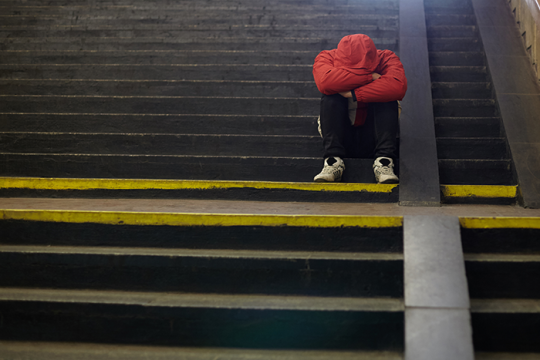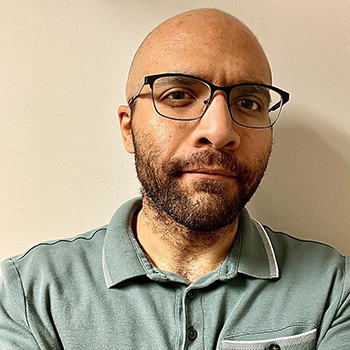
Note: Although this article is geared primarily toward men and masculine-presenting people, this article can be utilized by anyone seeking to find healthy ways to connect with others and overcome their loneliness.
In today's world, men and boys are dealing with what many refer to as the "male loneliness epidemic." In a 2024 Pew Research Center survey, 16% of all U.S. adults reported feeling lonely or isolated all or most of the time.However, the ways men deal with and express said loneliness is often quite different. According to a Gallup poll, American men ages 15-34 report higher levels of loneliness than women, with 25% of men stating that they "felt lonely a lot of the previous day," compared with 18% of women. However, due to societal stigma, men have fewer emotionally close friendships with their male peers, a higher sense of isolation, and a lower chance of seeking mental healthcare.
I can vouch for this myself. Growing up in a conservative Christian school, I was bullied relentlessly. I was a fat, non-athletic, biracial, neurodivergent nerd who enjoyed things like drawing and writing. This, of course, led me to feeling profoundly lonely. I was a target for verbal abuse and even a traumatic #MeToo experience. One reason I chose not to come out as bisexual in that environment was that doing so would have brought even more ostracism and could have even led to expulsion because my school explicitly banned expressions of LGBTQ+ identity.
What helped, however, was finding the few others in my school who were like me: people who were oddballs, dreamers, neurodivergent, and empathetic. In college, I gravitated toward those with stories similar to my own. I found that when I met people who actually understood my struggles, I didn't just feel less alone, I also felt less "wrong;" I found strength through connection.
While I was blessed to find healthy ways of coping with my loneliness, other young men and boys aren't so fortunate. This, unfortunately, is where the "manosphere" comes into play. This term refers to online communities such as forums, social media groups, and even pick-up-artist sites that often promote aggression, dominance, and blatant misogyny as solutions to men's loneliness. Instead of encouraging men to develop healthy friendships and grow emotionally, a lot of influencers tell men they are actually owed attention or intimacy from women, which adds to the damage of loneliness and replaces genuine connection with a dangerous mentality of entitlement.
Judaism, however, offers a different perspective. Ecclesiastes 4:9-10 teaches, "Two are better off than one, in that they have greater benefit from their earnings. For should they fall, one can raise the other." We all have less than stellar moments, and when we have friends ready to pick us up again, we have the potential to turn out stronger and more joyful than before. Pirkei Avot1:6instructs, "Acquire for thyself a companion." We are also warned: "Do not separate yourself from the community" (Pirkei Avot2:4).
So how do we, especially men and masculine-presenting folks, combat the epidemic of loneliness? One solution is to find community through shared interests, which was what I did.
What matters most to you? For example, I volunteer for the GO Campaign, which works to improve the lives of children around the world. I serve on the YLD Pride Committee of the Jewish United Fund of Metropolitan Chicago to promote LGBTQ+ visibility in Jewish spaces. I'm part of the URJ's Jews of Color Leadership Network to elevate the voices and experiences historically marginalized Jews. I'm a board member for Hillel at Miami University because I believe Jewish students deserve community and safety. I also sit on the board of the Bisexual Queer Alliance of Chicago because my identity as a bisexual man is important to me. These organizations have brought me to people who share my values, passions, and lived experiences. For many men, temple brotherhoods or groups like Men of Reform Judaism pair shared gender experiences with a desire to do good in the community.
It's understandable to have some trepidation about this, especially if we have social anxiety or come from communities that have been historically marginalized. However, checking out a group that shares your values is often where true healing begins. You don't need to dive headfirst into a crowd or force a deep conversation right off the bat; this can be as simple as simply scheduling a call to connect with someone or visiting relevant websites and social media to see what resonates with you. We are worthy of being known and cared for; the beauty of Jewish life is that it meets us where we are and invites us to grow together.
In Genesis 18, Abraham interrupts his conversation with God just so he can welcome potential new friends into his tent. This example of audacious hospitality can also be our model for combating loneliness. There are myriad open tents across the Jewish community and beyond that are available to us; we have to find what resonates the most and accept the invitation. When one boy, man, or oddball (like me) reaches out for a shared meal, a learning engagement, or the chance to pursue justice, that's where we find the Divine Presence. As Genesis 2:18 says: "it is not good for the human to be alone." Let's all combat loneliness one chance at a time.
Related Posts

Sacred Spaces, Sacred Responsibility: Practical Lifesaving Steps

God Lives in Memory Care


